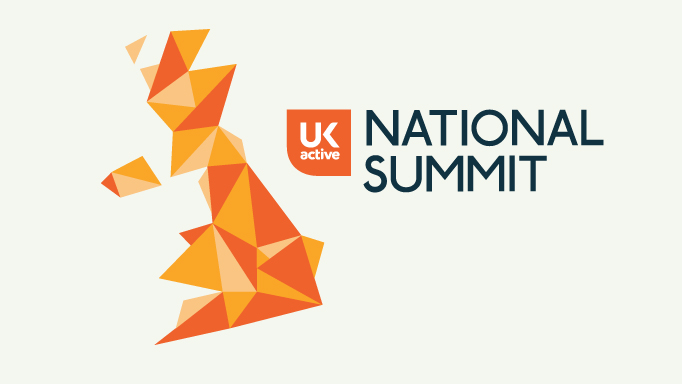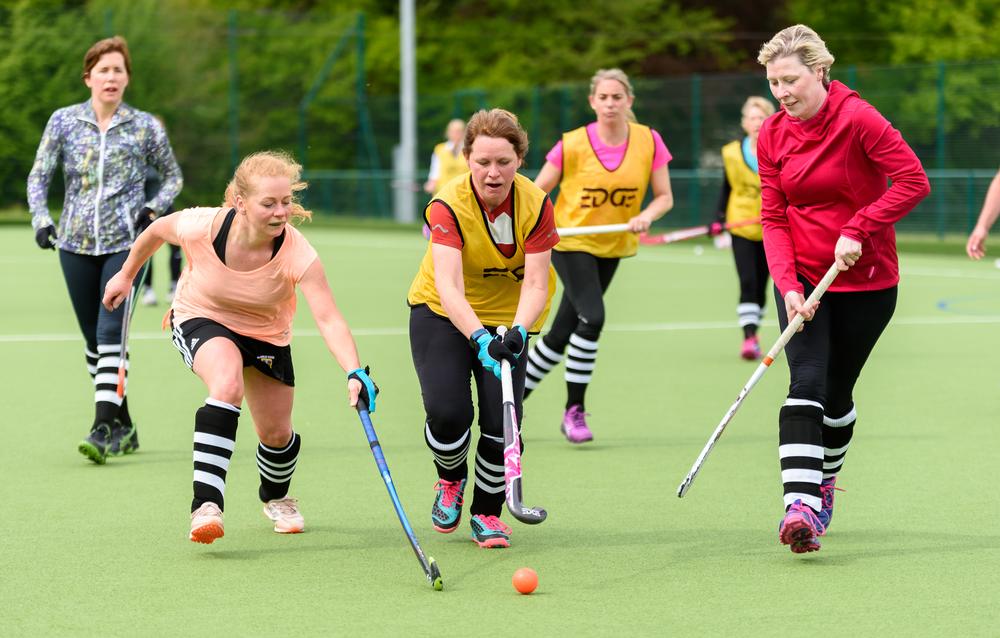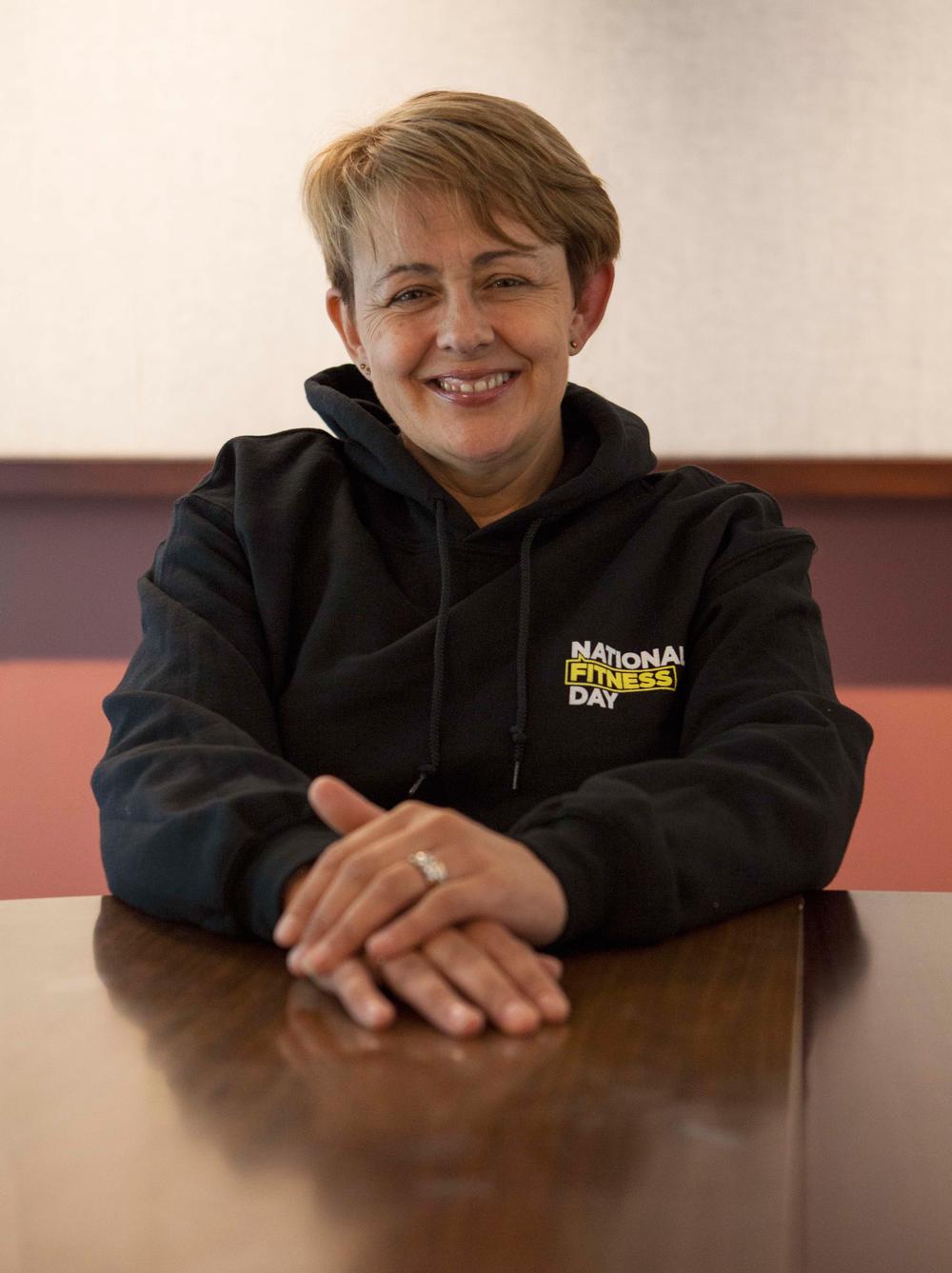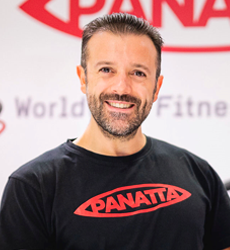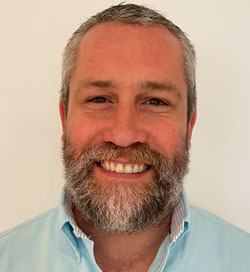What’s your personal vision as ukactive chair?
I often talk about physical activity at a personal level. It saved my life and gave me access to the life I have now. If my parents hadn’t encouraged me to be physically active, I wouldn’t have gone to the school I went to, wouldn’t have got the same education, would never have achieved what I’ve achieved. So that’s the personal driver, and that to me is really important. Because I believe that to bring the power of physical activity to life, you have to tell individuals’ stories.
My vision, based on my own personal experience, would be for physical activity to become the norm – not something you have to make an effort to do, but something you just go ‘yeah, that’s part of my everyday life’. I want it to be something we’ve designed and built into people’s lives. Fun opportunities. Opportunities you don’t even have to think about – they’re just there. We have to find ways to make it easier for people.
How long have you been chair of ukactive?
I’ve been chair for four and a half years and I always said I’d do two terms of three years. I think it’s really important not to outlive your time, even though there’s still loads to do. I still have a year and a half to go, of course – and even when I do go, I won’t be very far away. But the sector has to have a chance to change and move on. It needs to continually evolve.
What ukactive initiatives are you excited by at the moment?
I’m here at a really cool time for ukactive and the physical activity sector as a whole.
I’m really excited about our work to support schools as community hubs: what we can do in the summer holidays to keep young people active, how we can get them thinking differently about physical activity, and how we can better use the 39 per cent of community sports facilities that sit behind school gates.
The sector might not see the benefits straight away – it’s a slow burner until those young people leave school and earn their own money to pay for their activities – but if we’re not doing something with that age group and their families now, it’s a lost opportunity.
Another highlight for me is getting to work with people like Professor Rosie Meek, John McAvoy and Phillip Lee in harnessing the power of physical activity to prevent reoffending.
Again, it’s hard to measure, but it’s about using physical activity to change people’s lives, either through activity itself or by providing a career route. I still don’t see another sector like it where you can start off working part-time as a lifeguard and end up with an amazing job. That career path is really interesting and there’s more we have to do to develop it, but using physical activity to give people a second chance is really important to me.
There’s loads more – the ActiveLab accelerator programme, for example, which is growing each year. I see our role as making connections, helping people meet each other, enabling entrepreneurs to break into the sector to encourage innovation.
Generally, we’re seeing growing support out there for our sector; our members are seeing new opportunities. When I started four and a bit years ago, I’m not sure we would have thought about talking to the pension sector, but that’s something we’re now doing. As we develop and grow, we have to look for those different opportunities. We have to ensure ukactive and its members are sitting in the middle, getting our message heard by as wide a group as possible – local authorities, government, other businesses, other sectors.
What progress has been made politically?
We definitely have more influence in Westminster now. Politicians are starting to grasp the sheer size and scale of our sector – how many people work in it, its contribution to society, the secondary spend. But they’re also starting to appreciate the benefits of activity at a personal level. I see a lot of MPs not looking terribly happy or healthy, and when I talk to them about workplace health, you can almost see the lightbulb turn on – the ‘oh, that’s me’ moment of realisation.
Are we reaching a tipping point whereby the government buys into our preventative healthcare agenda? We’re closer to it, absolutely, but exactly where that tipping point is I’m not sure. Politics is just really slow sometimes. You have to keep chipping away, finding best practice examples and demonstrating their monetary value.
We made a call for government to leverage £1bn of capital expenditure funding to regenerate the UK’s ageing fleet of leisure centres, turning them into a new preventative frontline of one-stop wellness hubs – to the benefit of all operators in the sector. It was always going to take time but now we are working with Sport England to make scaling this model a reality, exploring investment options such as the pension funding surplus to increase the number of hubs out there.
In an era of political turmoil, how do we keep physical activity on the agenda?
While Brexit has been soaking up a lot of people’s time, I’ve found MPs have been very open to talking about physical activity. I talk to them about changing people’s lives, about people’s personal experiences of physical activity. It’s obviously a much happier topic for conversation than Brexit!
Now we need the political agenda to provide the same urgency and focus for the health of our nation as it does for Brexit. We’re still facing an inactivity crisis, and that has only deepened since the referendum.
There are lots of things we can’t change in the wider world of politics, and I don’t know what Brexit will bring, but we’re talking to the Department for Education, DCMS and lots of other departments we haven’t talked to before.
We’ve developed as an organisation and people are seeing us in a different light. We’re sitting at tables that two years ago we wouldn’t have been at.
Crucially, though, you can never sit back and say ‘yeah, we’ve got it now, it’s all sorted’. With each change of government, each change of minister, you have to keep working on those relationships. We have to keep going – to be ready to take on whatever comes our way and keep talking about what an amazing job our members do.
The other important thing to recognise is that it’s very easy to get caught up in the parliamentary work. Yes, that’s where lots of decisions are taken – but equally, lots of decisions are taken at a local authority level. The conversations we have with the Local Government Association are massively important, as is our partnership with Sport England.
But we don’t know what the next year in politics will bring. We need to concentrate on the things we can influence. Of course, there’s always so much we could do – and a temptation to try and do it all, but we’ve identified three pillars where we feel we can deliver the greatest value and where we’ll be focusing our efforts and these are: children and young people, workplace wellbeing, and active ageing.
What’s the theme of this year’s ukactive Summit?
The theme will be The Backbone of a Modern Britain, positioning physical activity – and the sectors that deliver it – as critical to the future health, wellbeing and prosperity of the nation.
Where previously I’ve spoken about having to change the way we live, this year we’ll be looking at the environments and the infrastructure needed to deliver that. We’ll examine the three major areas of public life: how we live, where we live, how we work. We want to show how our sector is connected and influenced by other sectors and institutions, from construction, housing and building developers, to employee benefits providers and insurance, to business, retail and the high street.
It’s about reiterating that all of our sectors are intrinsically linked by a shared ambition, and that physical activity has to be the backbone of what we’re all doing.
What sessions are you most looking forward to?
We have a session on youth violence – that’s a personal passion of mine. I sit on a foundation that uses sport as a tool to change kids’ lives and some of the stuff I’ve seen in other countries, where kids aren’t allowed to take part unless they leave their guns at home and they’re only six years old… In comparison, while the situation in the UK is quite scary, I’m both positive about and fascinated by what we might be able to achieve.
The session on regenerating the high street through physical activity promises to be a good one too. I live in a small community in the north-east and have been watching with interest what’s happened to the high street over the last few years. It used to be all independent shops and now probably half the high street is big brand name shops. I’m hearing similar stories from across the UK, so I’m excited to explore ways in which physical activity can help.
And then the prevention Green Paper session, because that really sets the tone for everything else.
What will be your rallying call for the industry at this year’s Summit?
It’s easy to look at what we haven’t yet done, but we should also learn to celebrate the things our members are achieving every day. We should recognise that we’re in a good place already.
But we can do more, and everyone can do something to make a difference. I’ve never met anybody in the sector who doesn’t passionately care about it. I believe we have to trust the strength of our people, our workforce, and get as many different voices as possible making the case for physical activity.









